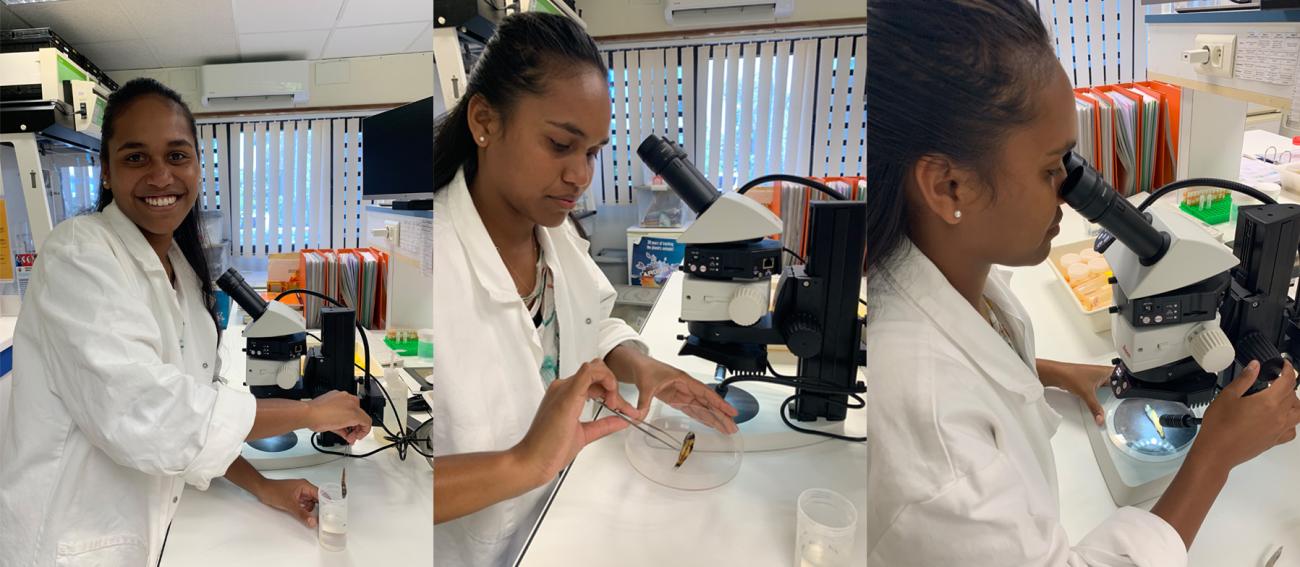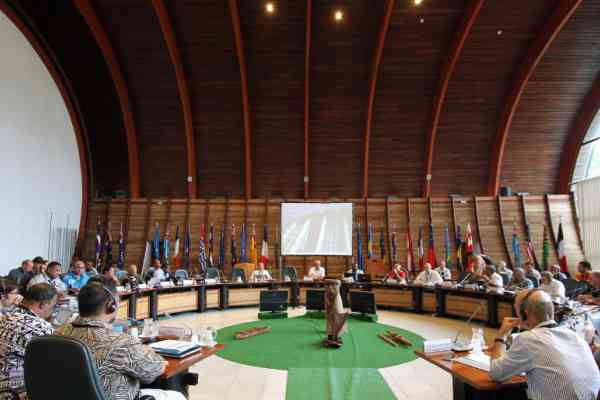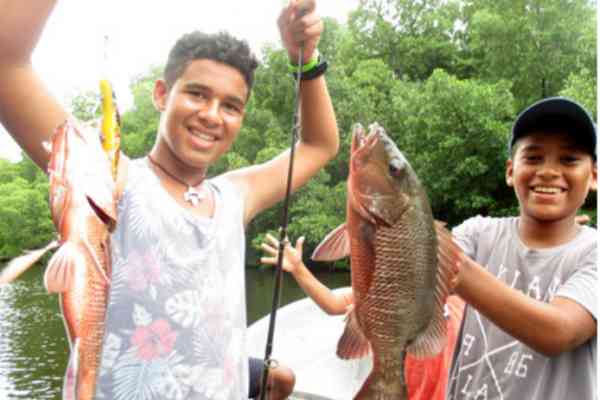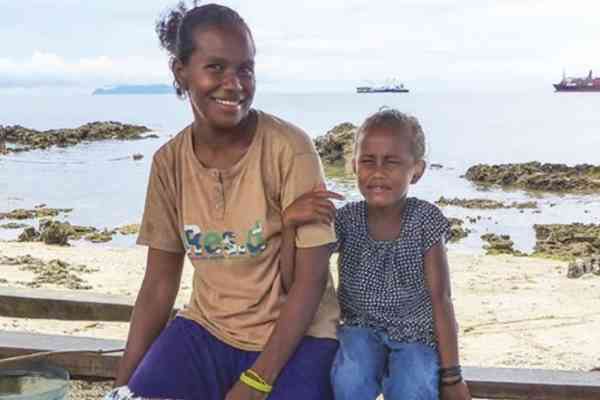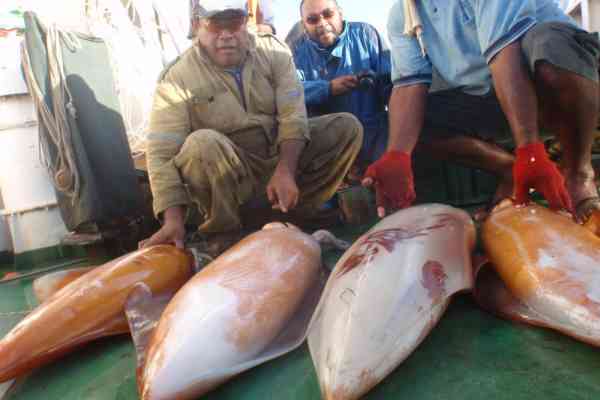By Toky Rasoloarimanana and Annie Portal
Lysa Wirotaroeno's passion for marine conservation started on Maré Island, New Caledonia, where she grew up surrounded by nature and her culture's respect for the ocean. Lysa's story is a powerful reminder to Pacific youth considering a career in marine science or conservation that it is possible to follow one's passion and contribute to the preservation of our resources and the way of life in our communities through hard work and commitment, despite the challenges.
Lysa Wirotaroeno, a 23-year-old graduate in earth and life sciences, was born and raised on Maré Island, a small island in New Caledonia. Lysa's childhood was supported by her single mother's hard work and sacrifice; she worked long hours as a cleaner to provide for her family. Despite the challenges, Lysa's mother always ensured that Lysa had access to books and educational resources, which sparked her curiosity and love for learning.
"I saw how hard my mother worked to provide for us, and I wanted to make her proud by pursuing a career that would allow me to give back to my community."
Growing up surrounded by nature, Lysa also had a strong connection with her culture, which taught her, from a very young age, the importance of preserving the environment and respecting the ocean. These experiences left a lasting impression on Lysa and solidified her desire to pursue a career in the field of marine conservation.
After completing her degree in earth and life sciences, Lysa turned to her uncle Charles, a well-known and experienced fisheries observer, from New Caledonia Fisheries Department, who had been working at sea on longliners for over 20 years. Lysa had always admired her uncle's dedication to the Pacific Community’s (SPC) observer at sea programme and the impact it had on Pacific Island countries' tuna management. With his encouragement and support, Lysa applied for an internship at SPC and was accepted, marking the beginning of her journey in preserving Pacific tuna.
"When I started my internship, I didn't expect to develop such a strong passion for science and marine ecology," Lysa admits. "But the more I learned about the work that SPC does, the more I wanted to be a part of it."
One of the projects Lysa was heavily involved in was tuna sampling for the Pacific Marine Specimen Bank, which aims to collect and store samples of tunas and other pelagic species from the Pacific Ocean. This project is crucial in providing samples to better understand the population dynamics of tunas, which is essential for the sustainable management of this important resource. The Pacific Ocean is home to the world's largest tuna stocks, and these fish provide essential protein and income for communities in the region.
During her time at SPC, Lysa participated in the port sampling of different tuna species, such as yellowfin, bigeye, and skipjack, from trips conducted by local fisheries working in collaboration with SPC. In the field, she learned how to collect the samples needed for ecological research of these species, including muscles, gonads, dorsal spines, and even otoliths – also known as fish ear bones, they are small structures of calcium carbonate that are collected by carefully sawing the skull of the tuna.
Lysa also contributed to the research on tuna diet being conducted in the SPC laboratory by helping to analyse the stomach contents of tuna and micronekton (organisms generally smaller than 20cm that tuna feed on) collected during scientific cruises. She learned important steps in the collection, storage, and processing of samples that enable research on pelagic ecosystem monitoring conducted at SPC.
Reflecting on her journey so far, Lysa recognised the pivotal role that SPC played in opening doors for her. Through her internship with the organisation, Lysa has strengthened her passion for science, discovering new things and learning about the environment that surrounds her. She also gained valuable contacts that has led to a job offer in New Caledonia at the “Institut de Recherche pour le Développement” (The French National Research institute for Sustainable Development).
"I hope to use my knowledge and new experience to continue to contribute to the preservation of our environment and our way of life," she says.
For more information: Contact Toky Rasoloarimanana, Communications Officer for the Pacific Community Fisheries, Aquaculture and Marine Ecosystem Division – [email protected] – Mob: +687 899394
